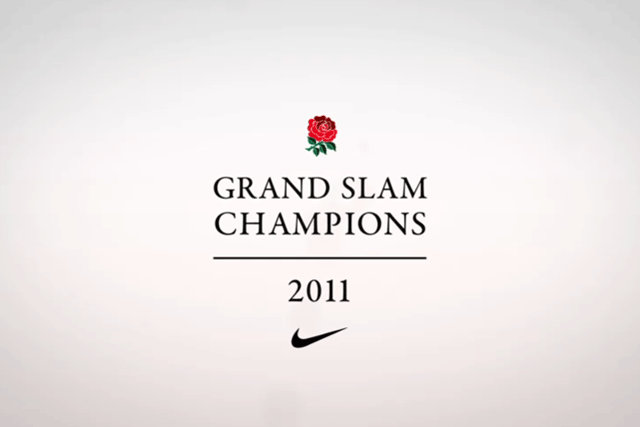
When a Nike ad featuring England rugby players diving through the air in celebration of a presumed Grand Slam victory found its way on to YouTube, it not only rubbed salt into the wounds of disappointed fans: Nike was left embarrassed and tried in vain to pull the video as it went viral.
The TV ad, created by Wieden & Kennedy, was intended to be shown only if England won its final 6 Nations match against Ireland on 19 March. However, England lost and the ad was leaked from an internal Nike email.
'Like any sponsor, we had to plan potential communications in advance of the game,' says a Nike spokesman. 'Obviously, our pre-game optimism was misplaced, and the video was never meant to see the light of day.'
Therein lies the dilemma, says Nick Farnhill, founder and partner at digital agency Poke. 'If they had won it, that's a fantastic thing to get out quickly and celebrate with an audience,' he adds.
With dozens of sponsor brands planning their content for London 2012 Olympics advertising, featuring teams and individual athletes, second-guessing results will increasingly be a job for the marketing department.
The Nike ad scored more than 200,000 views on YouTube in a matter of days and a spoof has appeared, making its deletion nigh on impossible.
'In a situation like this, the brands' reaction is more important and influential than the episode itself,' warns Toby Horry, managing partner at Dare.
In every competition there has to be a loser - not to mention the possibility of star athletes failing a dope test. So how should brands avoid such content going public and, potentially, viral?
1. React quickly
Active management and moving quickly are crucial, particularly when content can be so easily shared. Talk to the agency, PR team and, in some cases, risk-management specialists, to draw up a plan of action.
Beyond the initial response, brands should continue to monitor and react to a situation, remembering that content does not die once it is released online.
2. Apologise
Sorry may be the hardest word to say, but brands should hold their hands up and apologise when things go wrong. This should be done where the content is being shared or viewed, according to Farnhill. 'All too often, the apology is in the form of a press release, which does not get seen by the intended audience,' he says. 'A personal and informal tone works well in these cases.'
3. Embrace it
When John West, the canned-fish brand, made a short film of a fisherman fighting off a man in a bear suit, it supposedly was not meant to go public. However, it was leaked and became a viral hit, garnering more than 300m views.
John West then ran the ad on TV and it went on to win 10 awards, including 'Best Commercial of the Year' at the British Television Advertising Awards and a Gold Lion at the Cannes Lions Festival in 2001.
4. Due diligence
Provisions to mitigate the risks must be put in place. Contracts can be drawn up to protect sensitive company information, and the same applies to communications material. However, all staff must be fully briefed, to avoid leaks.
5. Boost security
The digital environment makes it easy to copy content, so it is important to use secure digital channels to share and proof content. Have a password security system in place that is shared only by selected individuals. Also, consider using digital signatures on content, so that if there is a leak, it is traceable.
6. Don't take yourself too seriously
Just as the athletes themselves try, fail and step up again, brands should not hide, says Martin Brooks, managing director of digital agency Work Club.
'Nike should release a YouTube compilation of similar #fails, such as the time we thought Carl Lewis would break the world record, or when we believed Michael Jordan was coming back to the NBA,' he adds.
Readers say:
Peter Lewis - This isn't as bad as it seems. I've worked with clients who have sponsorship rights over sporting events and it's common practice to produce ads for various scenarios. I think it's more expensive than it is embarrassing.
Andy Reid-McGlinn - It doesn't look finished, but it does make Nike look foolish, and England somewhat arrogant for allowing their players to be used for such a video before the Grand Slam was confirmed.
Steve Keeling - Oops!
Eoin O'Connor - Embarrassing maybe, but we would all prefer to have it in the bag if it was our client and the marketing opportunity was there to take.

